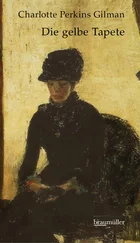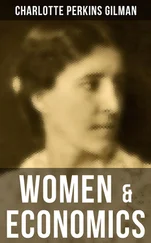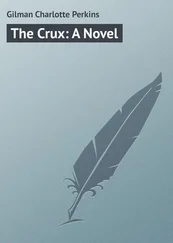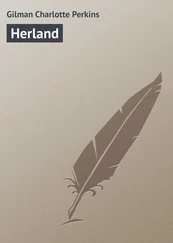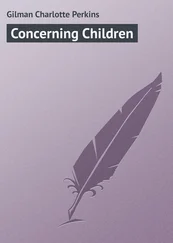Charlotte Perkins Gilman
With Her in Ourland
Quality of Life, Freedom, More time with the ones you Love.
Visit our website: LYFREEDOM.COM
Part 1 Synopsis of Herland
Three American young men discover a country inhabited solely by women, who were Parthenogenetic, and had borne only girl children for two thousand years; they marry three of the women. Two of the men and one woman leave the country of Herland to return to America; Jeff Margrave remaining with his wife, Celis, a willing citizen; Terry O. Nicholson being expelled for bad conduct; and Ellador electing to go with her husband, Vandyck Jennings.
Part 2 With Her in Ourland
Chapter
1
THE three of us, all with set faces of high determination, sat close in the big biplane as we said goodbye to Herland and rose whirring from the level rock on that sheer edge. We went up first, and made a wide circuit, that my wife Ellador might have a view of her own beloved land to remember. How green and fair and flower-brightened it lay below us! The little cities, the thick dotted villages, the scattered hamlets and wide parks of grouped houses lay again beneath our eyes as when we three men had first set our astonished masculine gaze on this ultra-feminine land.
Our long visit, the kind care, and judicious education given us, even though under restraint, and our months of freedom and travel among them, made it seem to me like leaving a second home. The beauty of the place was borne in upon me anew as I looked down on it. It was a garden, a great cultivated park, even to its wildest forested borders, and the cities were ornaments to the landscape, thinning out into delicate lace-like tracery of scattered buildings as they merged into the open country.
Terry looked at it with set teeth. He was embittered through and through, and but for Ellador I could well imagine the kind of things he would have said. He only made this circuit at her request, as one who said: "Oh, well—an hour or two more or less—it's over, anyhow!"
Then the long gliding swoop as we descended to our sealed motor-boat in the lake below. It was safe enough. Perhaps the savages had considered it some deadly witch-work and avoided it; at any rate, save for some dents and scratches on the metal cover, it was unhurt.
With some careful labor, Terry working with a feverish joyful eagerness, we got the machine dissembled and packed away, pulled in the anchors, and with well-applied oiling started the long disused motor, and moved off toward the great river.
Ellador's eyes were on the towering cliffs behind us. I gave her the glass, and as long as we were on the open water her eyes dwelt lovingly on the high rocky border of her home. But when we shot under the arching gloom of the forest she turned to me with a little sigh and a bright, steady smile.
"That's good-bye," she said. "Now it's all looking forward to the Big New World—the Real World—with You!"
Terry said very little. His heavy jaw was set, his eyes looked forward, eagerly, determinedly. He was polite to Ellador, and not impolite to me, but he was not conversational.
We made the trip as fast as was consistent with safety; faster, sometimes; living on our canned food and bottled water, stopping for no fresh meat; shooting down the ever-widening river toward the coast.
Ellador watched it all with eager, childlike interest. The freshness of mind of these Herland women concealed their intellectual power. I never quite got used to it. We are so used to seeing our learned men cold and solemn, holding themselves far above all the "enthusiasm of youth," that it is hard for us to associate a high degree of wisdom and intellectual power with vivid interest in immediate events.
Here was my Wife from Wonderland, leaving all she had ever known,—a lifetime of peace and happiness and work she loved, and a whole nation of friends, as far as she knew them; and starting out with me for a world which I frankly told her was full of many kinds of pain and evil. She was not afraid. It was not sheer ignorance of danger, either. I had tried hard to make her understand the troubles she would meet. Neither was it a complete absorption in me—far from it. In our story books we read always of young wives giving up all they have known and enjoyed "for his sake." That was by no means Ellador's position. She loved me—that I knew, but by no means with that engrossing absorption so familiar to our novelists and their readers. Her attitude was that of some high ambassador sent on an important and dangerous mission. She represented her country, and that with a vital intensity we can hardly realize. She was to meet and learn a whole new world, and perhaps establish connections between it and her own dear land.
As Terry held to his steering, grim and silent, that feverish eagerness in his eyes, and a curb on his usually ready tongue, Ellador would sit in the bow, leaning forward, chin on her hand, her eyes ahead, far ahead, down the long reaches of the winding stream, with an expression such as one could imagine on Columbus. She was glad to have me near her. I was not only her own, in a degree she herself did not yet realize, but I was her one link with the homeland. So I sat close and we talked much of the things we saw and more of what we were going to see. Her short soft hair, curly in the moist air, and rippling back from her bright face as we rushed along, gave the broad forehead and clear eyes a more courageous look than ever. That finely cut mobile mouth was firmly set, though always ready to melt into a tender smile for me.
"Now Van, my dear," she said one day, as we neared the coast town where we hoped to find a steamer, "Please don't worry about how all this is going to affect me. You have been drawing very hard pictures of your own land, and of the evil behavior of men; so that I shall not be disappointed or shocked too much. I won't be, dear. I understand that men are different from women—must be, but I am convinced that it is better for the world to have both men and women than to have only one sex, like us. We have done the best we could, we women, all alone. We have made a nice little safe clean garden place and lived happily in it, but we have done nothing whatever for the rest of the world. We might as well not be there for all the good it does anyone else. The savages down below are just as savage, for all our civilization. Now you, even if you were, as you say, driven by greed and sheer love of adventure and fighting—you have gone all over the world and civilized it."
"Not all, dear," I hastily put in. "Not nearly all. There are ever so many savages left."
"Yes I know that, I remember the maps and all the history and geography you have taught me."
It was a never-ending source of surprise to me the way those Herland women understood and remembered. It must have been due to their entirely different system of education. There was very much less put into their minds, from infancy up, and what was there seemed to grow there—to stay in place without effort. All the new facts we gave them they had promptly hung up in the right places, like arranging things in a large well-planned, not over-filled closet, and they knew where to find them at once.
"I can readily see," she went on, "that our pleasant collective economy is like that of bees and ants and such co-mothers ; and that a world of fathers does not work as smoothly as that. We have observed, of course, among animals, that the instincts of the male are different from those of the female, and that he likes to fight. But think of all you have done!"
That was what delighted Ellador. She was never tired of my stories of invention and discovery, of the new lands we had found, the mountain ranges crossed, the great oceans turned into highways, and all the wonders of art and science. She loved it as did Desdemona the wild tales of her lover, but with more understanding.
Читать дальше


